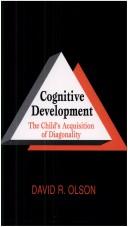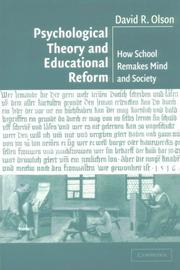| Listing 1 - 10 of 44 | << page >> |
Sort by
|
Book
ISBN: 0125256507 1322303010 1483267385 Year: 1970 Publisher: New York Academic Press
Abstract | Keywords | Export | Availability | Bookmark
 Loading...
Loading...Choose an application
- Reference Manager
- EndNote
- RefWorks (Direct export to RefWorks)

ISBN: 0521443113 9780521443111 Year: 1994 Publisher: Cambridge Cambridge University Press
Abstract | Keywords | Export | Availability | Bookmark
 Loading...
Loading...Choose an application
- Reference Manager
- EndNote
- RefWorks (Direct export to RefWorks)
Cognitive psychology --- Psycholinguistics --- Cognitie --- Cognition --- Communicatie [Schriftelijke ] --- Communication [Written ] --- Communication écrite --- Geschreven taal --- Langue écrite --- Schriftelijke communicatie --- Schrijftaal --- Taal [Geschreven ] --- Written communication --- Psycholinguistique --- --Communication écrite --- --Discours --- --Analyse --- --Critique littéraire --- --Written communication --- Cognition. --- Written communication. --- Historische en vergelijkende pedagogiek --- Lerarenopleiding --- (vak)didactiek talen --- Historische en vergelijkende pedagogiek. --- (vak)didactiek talen. --- Discours --- Analyse --- Critique littéraire

ISBN: 0521575583 9780521575584 Year: 1996 Publisher: Cambridge Cambridge University Press
Abstract | Keywords | Export | Availability | Bookmark
 Loading...
Loading...Choose an application
- Reference Manager
- EndNote
- RefWorks (Direct export to RefWorks)
Cognition --- Written communication --- Communication écrite --- 028 --- 316.772.21 --- Psychology --- Written discourse --- Written language --- Communication --- Discourse analysis --- Language and languages --- Visual communication --- 028 Lezen. Lectuur --- Lezen. Lectuur --- 316.772.21 Verbale codes--(communicatiesociologie) --- Verbale codes--(communicatiesociologie) --- Cognitive psychology --- Psycholinguistics --- Literature
Book
ISBN: 1316743594 1316730085 131674552X 1316678466 131674745X 1316753247 1107162890 1316615006 1316732010 Year: 2017 Publisher: Cambridge : Cambridge University Press,
Abstract | Keywords | Export | Availability | Bookmark
 Loading...
Loading...Choose an application
- Reference Manager
- EndNote
- RefWorks (Direct export to RefWorks)
Although the importance of literacy is widely acknowledged in society and remains at the top of the political agenda, writing has been slow to establish a place in the cognitive sciences. Olson argues that to understand the cognitive implications of literacy, it is necessary to see reading and writing as providing access to and consciousness of aspects of language, such as phonemes, words and sentences, that are implicit and unconscious in speech. Reading and writing create a system of metarepresentational concepts that bring those features of language into consciousness as a subject of discourse. This consciousness of language is essential not only to acquiring literacy but also to the formation of systematic thought and rationality. The Mind on Paper is a compelling exploration of what literacy does for our speech and hence for our thought, and will be of interest to readers in developmental psychology, cognitive science, linguistics, and education.
Book
ISBN: 1316513335 1009064568 1009075322 1009081098 Year: 2022 Publisher: Cambridge : Cambridge University Press,
Abstract | Keywords | Export | Availability | Bookmark
 Loading...
Loading...Choose an application
- Reference Manager
- EndNote
- RefWorks (Direct export to RefWorks)
Understanding, as Descartes, Locke and Kant all insisted, is the primary 'faculty' of the mind; yet our modern sciences have been slow to advance a clear and testable account of what it means to understand, of children's acquisition of this concept and, in particular, how children come to ascribe understanding to themselves and others. By drawing together developmental and philosophical theories, this book provides a systematic account of children's concept of understanding and places understanding at the heart of children's 'theory of mind'. Children's subjective awareness of their own minds, of what they think, depends on learning a language for ascribing mental states to themselves and others. This book will appeal to researchers in developmental psychology, cognitive science, education and philosophy who are interested in the cognitive and emotional development of children and in the more basic question of what it means to have a mind.
Comprehension. --- Understanding --- Apperception --- Learning, Psychology of --- Memory --- Cognitive learning.

ISBN: 9780805854022 0805854029 Year: 2006 Publisher: Mahwah: Lawrence Erlbaum,
Abstract | Keywords | Export | Availability | Bookmark
 Loading...
Loading...Choose an application
- Reference Manager
- EndNote
- RefWorks (Direct export to RefWorks)
Social change --- Social structure --- Literacy --- Anthropology --- Goody, Jack
Book
ISBN: 9781009064569 9781316513330 9781009073523 Year: 2022 Publisher: Cambridge Cambridge University Press
Abstract | Keywords | Export | Availability | Bookmark
 Loading...
Loading...Choose an application
- Reference Manager
- EndNote
- RefWorks (Direct export to RefWorks)
Book
ISBN: 2725624053 Year: 2005 Publisher: Paris : Retz,
Abstract | Keywords | Export | Availability | Bookmark
 Loading...
Loading...Choose an application
- Reference Manager
- EndNote
- RefWorks (Direct export to RefWorks)
On impute à l?école nombre de difficultés : baisse du niveau, échecs trop importants, discipline défaillante? malgré les progrès que la psychologie a apportés dans la compréhension de l?enfant et dans l?amélioration des pratiques pédagogiques. Largement inspirées par les acquis de la psychologie, les réformes scolaires seraient-elles impossibles ? La psychologie serait-elle impuissante à améliorer le système ?Loin de dénigrer la théorie psychologique, David Olson tente d?expliquer les raisons de ce divorce. Il nous invite à prendre en considération une dimension de l?école qui demeure souvent cachée : la dimension institutionnelle. Cette occultation a des conséquences très contre-productives en terme d?analyse et d?action. En effet, elle entretient la confusion entre deux dimensions qui parcourent le système scolaire : celle des enfants engagés comme élèves dans un processus cognitif et culturel complexe, et celle de l?école comme institution, régie par des normes, des règles, des contrôles qui visent à assurer une continuité de service dans le temps et dans l?espace. Or, la psychologie n?a pas réellement prise sur cette dimension proprement sociologique de l?institution qui concerne d'abord les enseignants et les cadres du système et aussi l'ensemble de la bureaucratie dont nos sociétés développées sont porteuses.Pour mieux réformer l?école, il faut donc ne pas confondre ces deux dimensions et repenser en composante institutionnelle avec ses propres ressorts.
Educational change --- Educational psychology. --- Knowledge, Sociology of --- School environment --- Enseignement --- Psychopédagogie --- Sociologie de la connaissance --- Milieu scolaire --- Réforme

ISBN: 0805823026 Year: 1996 Publisher: Mahwah, N.J. : L. Erlbaum,
Abstract | Keywords | Export | Availability | Bookmark
 Loading...
Loading...Choose an application
- Reference Manager
- EndNote
- RefWorks (Direct export to RefWorks)

ISBN: 0521532116 Year: 2003 Publisher: Cambridge Cambridge University press
Abstract | Keywords | Export | Availability | Bookmark
 Loading...
Loading...Choose an application
- Reference Manager
- EndNote
- RefWorks (Direct export to RefWorks)
Educational change --- Educational psychology --- School management and organization
| Listing 1 - 10 of 44 | << page >> |
Sort by
|

 Search
Search Feedback
Feedback About UniCat
About UniCat  Help
Help News
News